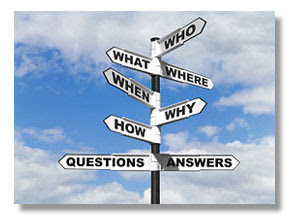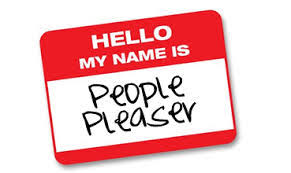
5 Essentials for Strong Mental Health
When is the last time you scheduled a Mental Health Check-up?
 We all have a doctor we see regularly for annual physicals and those colds and minor illnesses that come up throughout the year. We religiously schedule our teeth cleaning appointments with the dentist. Women schedule annual gynecological exams, some people see a chiropractor on a regular basis, and many go to church weekly to nurture our soul. We know research has shown that taking care of our mental health is as essential as taking care of our physical and spiritual health. But, how often do we schedule regular mental health check-ups?
We all have a doctor we see regularly for annual physicals and those colds and minor illnesses that come up throughout the year. We religiously schedule our teeth cleaning appointments with the dentist. Women schedule annual gynecological exams, some people see a chiropractor on a regular basis, and many go to church weekly to nurture our soul. We know research has shown that taking care of our mental health is as essential as taking care of our physical and spiritual health. But, how often do we schedule regular mental health check-ups?
There are 3 reasons why is it important to schedule regular Mental Health Check-ups with a professional counselor…
1. The Present: To address any current issues you are facing.
2. The Past: To determine if you have any unresolved issues from the past that are causing you disturbance in your current life.
3. The Future: To develop effective life management skills to help you daily live the life you desire.
Once you are “healthy” mentally, checking in with your counselor on a regular basis helps address whatever issues may arise so that you maintain strong mental health throughout your lifespan. In addition to physical health improvement, research has shown that nurturing our mental health leads to maintaining healthy relationships with intimate partners, family members and friends.
Along with Mental Health Check-ups…
There are 5 Essential Ways to achieve and maintain strong Mental Health:
 1. Practice Good Self-Care – practicing good self-care is the most important step to mental wellness. This involves, eating well, regular exercise, 7 to 9 hours of sleep each night and using relaxation techniques such as meditation and deep breathing to reduce stress.
1. Practice Good Self-Care – practicing good self-care is the most important step to mental wellness. This involves, eating well, regular exercise, 7 to 9 hours of sleep each night and using relaxation techniques such as meditation and deep breathing to reduce stress.
2. Build a Support System – people need people. We all need to have relationships with people who are safe and with whom we can share our life’s journey. Our support system can consist of our partner, family members or friends.
3. Resolve the Unresolved – most mental and emotional distress comes from unresolved issues. These issues may stem from abuse, a lack of problem solving skills, or circumstances out of our control, but they must be resolved or they will affect our current and future mental well-being.
4. Nurture your Spiritual Beliefs – spiritual beliefs give us a sense of purpose, are usually the basis for our value system, and often give us hope and strength throughout our life’s journey so it is important to nurture our spirituality.
5. Laugh – studies have shown that laughing decreases pain, stress hormones, and anxiety. It also helps increase blood flow to promote heart health. Learning to laugh at yourself by not taking yourself so seriously and enjoying a good laugh with other people on a regular basis will also increase your relational bonds.
May is Mental Health Awareness Month!
Dr. Crystal Hollenbeck is a Licensed Mental Health Counselor and specializes in relationships, trauma recovery, and anxiety management. Please call or text Dr. Hollenbeck at 407.408.6521 for a mental health check up.

Signs of Codependency in Relationships | Are you a People Pleaser?
A healthy relationship consists of two people that understand the concept of each person being valuable and important. An understanding exists that we are each responsible for our own wellbeing and that I don’t have the power to make you happy or whole. A healthy relationship has an understanding that we help each other, sacrifice for each other, are supportive of each other and we must have a strong sense of self worth without taking responsibility for the other person’s self worth or self esteem. The relationship is not based on a 50/50 concept, but on a reciprocal concept of both making the effort toward a balance in the relational dynamics with healthy boundaries.
 Codependency is when a person is dependent on the approval of others for their own sense of identity and wellbeing. A codependent person has poor boundaries, the need to control resulting in them being manipulative at times, poor self worth, and they tend to take on the role of rescuer or caretaker. Oftentimes they self identify as the “fixer”. Someone who is codependent is basically looking for external validation for their own self worth. A healthy person understands that they can’t control other people’s thoughts, beliefs, or behaviors and they must find their sense of self internally, not externally.
Codependency is when a person is dependent on the approval of others for their own sense of identity and wellbeing. A codependent person has poor boundaries, the need to control resulting in them being manipulative at times, poor self worth, and they tend to take on the role of rescuer or caretaker. Oftentimes they self identify as the “fixer”. Someone who is codependent is basically looking for external validation for their own self worth. A healthy person understands that they can’t control other people’s thoughts, beliefs, or behaviors and they must find their sense of self internally, not externally.
Codependency is an unhealthy psychological belief system (usually developed in childhood) and set of behaviors that can exist in all types of relationships including marriage, colleagues, co-workers, parent/child, relatives, and friendships. Someone struggling with codependency is usually a very responsible person. In fact, they take on responsibility that is not theirs. They tend to be very caring and nurturing to the extent of sacrificing their own needs and wants to take care of others. Sometimes they are referred to as enablers when they are in a relationship with an addict and they believe they are helping the addicted loved one by giving them money and doing things for them that they can do for themselves. These behaviors and mindset are actually harming their loved one by contributing to the factors that keep the person stuck in addiction.
Below are signs you may be struggling with Codependency:
Someone has an issue or shares a problem with you and you feel responsible for solving their problem for them.
You find yourself giving advice whether you are asked for it or not.
You have a difficult time expressing your own opinion if it differs from others.
You have been called or self identify as a “people pleaser”.
You live in the thought life of “if I do this, then he/she will do that” or “if I do this, then things will get better”. You tend to live in the hope of what will be rather than the reality of what is.
You have difficulty being alone. You make decisions based on the fear the relationship will end.
Feeling unappreciated or used.
You overextend yourself. You take on extra work on a regular basis.
Tendency to be very hard on yourself.
You struggle to make decisions without the approval of others.
You have poor boundaries. You say yes when you really want to say no out of fear of hurting someone’s feelings. You will neglect yourself and your responsibilities to be available to help others.
Spend too much time worrying.
You feel victimized in relationships, you believe people are doing things to you verses taking responsibility for your own life and decisions.
Perfectionism.
You stay in friendships, committed relationships, and jobs when you know you should leave.
If you identify with the above signs, you are vulnerable to being abused in your relationships due to your need to please others and the pattern of minimizing your own needs.
You are valuable.
You can change.
Consider talking to a person you trust about your concerns you may be identifying with codependency.
Educate yourself on boundaries so you can begin to establish and maintain healthy boundaries.
Consider working with a therapist to identify what impacted your early development and how to take the steps to break the codependent patterns while developing a healthy sense of self worth and healthy boundaries.
Consider joining a 12-step program like Codependents Anonymous (CoDA).
